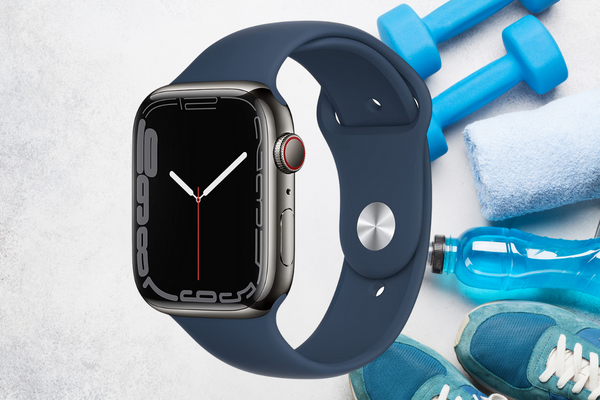Fitness trackers are becoming increasingly popular as a way to monitor and improve one's health and fitness. They offer a wide range of features and capabilities, from step counting and heart rate monitoring to sleep tracking and GPS navigation. In this buying guide, you will learn everything you need to know about buying fitness trackers, from the key features and benefits to the popular brands and models, and the frequently asked questions.

Key Features to Consider
Before you start shopping for fitness trackers, it's important to know what features to look for, as they can affect the accuracy, usability, and compatibility of the device. Here are some of the key features to consider:
Fitness tracking: The fitness tracking of a fitness tracker determines how accurately it can monitor and record your activity levels, such as steps taken, calories burned, distance traveled, and floors climbed. Some fitness trackers also have specific modes for different activities, such as running, cycling, or swimming.
Heart rate monitoring: The heart rate monitoring of a fitness tracker determines how accurately it can measure and track your heart rate, both at rest and during exercise. Some fitness trackers also have continuous heart rate monitoring, sleep tracking, and stress monitoring.
GPS tracking: The GPS tracking of a fitness tracker determines how accurately it can track your location and route, as well as provide real-time data on your speed, distance, and elevation. Some fitness trackers also have advanced features, such as mapping, navigation, and offline syncing.
Smartphone compatibility: The smartphone compatibility of a fitness tracker determines how well it can sync and interact with your smartphone, such as displaying notifications, controlling music, or tracking your progress on third-party apps.
Battery life: The battery life of a fitness tracker determines how long it can stay powered on and active on a single charge, typically ranging from a few days to a week or more. Some fitness trackers also have quick charging, low power modes, and replaceable batteries.

Popular Brands and Models
Now that you know what features to look for, let's explore some of the popular brands and models of fitness trackers on the market:
Fitbit Charge 5: The Fitbit Charge 5 is a versatile and feature-rich fitness tracker that offers heart rate monitoring, GPS tracking, sleep tracking, and smartphone notifications. It also has a sleek and durable design, and a range of customizable watch faces and straps.

Garmin Forerunner 955: The Garmin Forerunner 955 is a high-end fitness tracker that offers advanced features, such as GPS tracking, heart rate monitoring, pulse oximeter, and VO2 max. It also has a long battery life, customizable screens, and support for music and payments.

Apple Watch Series 7: The Apple Watch Series 7 is a smart and stylish fitness tracker that offers heart rate monitoring, GPS tracking, sleep tracking, and cellular connectivity. It also has a larger and brighter display, faster charging, and a range of health and wellness features, such as ECG and fall detection.

Samsung Galaxy Watch 4: The Samsung Galaxy Watch 4 is a versatile and powerful fitness tracker that offers heart rate monitoring, GPS tracking, sleep tracking, and stress management. It also has a rotating bezel, a wide range of apps, and compatibility with both Android and iOS devices.

Polar Vantage V2: The Polar Vantage V2 is a premium and precise fitness tracker that offers GPS tracking, heart rate monitoring, recovery analysis, and sleep tracking. It also has a lightweight and breathable design, and a range of training tools, such as running power and hill

Tips for Buying Fitness Trackers
Before you make a final decision on which fitness tracker to buy, here are some additional tips to keep in mind:
Consider your goals: Think about what you want to achieve with your fitness tracker, whether it's to lose weight, train for a marathon, or simply stay active. Look for a fitness tracker that has the features and metrics that align with your goals, such as a heart rate monitor for cardio training, or a sleep tracker for better rest.
Check compatibility: Make sure that the fitness tracker you choose is compatible with your smartphone and other devices, such as smartwatches or fitness apps. Some fitness trackers only work with certain operating systems or require specific hardware or software.
Read reviews: Always read reviews from other buyers, as they can provide valuable insights into the pros and cons of a particular fitness tracker, as well as its reliability, durability, and customer service.
Try before you buy: If possible, try on and test out different fitness trackers before making a purchase, to see how comfortable, accurate, and user-friendly they are. Look for a fitness tracker with a user-friendly interface, intuitive controls, and customizable settings.
Compare prices: Don't assume that the most expensive fitness tracker is always the best. Compare prices from different retailers and online stores, and look for sales, discounts, or bundle deals.
FAQ
1. Can I swim with a fitness tracker?
- It depends on the waterproof rating of the fitness tracker. Some fitness trackers are water-resistant, meaning they can withstand splashes, rain, or sweat, but not submersion. Other fitness trackers are waterproof, meaning they can be used for swimming, snorkeling, or diving, but not necessarily for high-pressure activities such as scuba diving.
2. How accurate are fitness trackers?
- The accuracy of fitness trackers can vary depending on the brand, model, and activity being measured. Most fitness trackers use sensors such as accelerometers and gyroscopes to track movement, and optical sensors to track heart rate. However, they can be affected by factors such as skin tone, hair, and motion artifacts. It's important to remember that fitness trackers are meant to provide general estimates, rather than medical diagnoses.
3. Can I wear a fitness tracker to bed?
- Yes, most fitness trackers have a sleep tracking feature that allows you to monitor the duration, quality, and stages of your sleep. However, it's important to choose a fitness tracker that is comfortable to wear and has a battery life that can last through the night. Some fitness trackers also have a silent alarm feature that vibrates on your wrist, to wake you up gently.
4. How do I charge a fitness tracker?
- Most fitness trackers come with a charging cable or dock that connects to a USB port or wall adapter. Simply attach the charging cable to the fitness tracker and plug it in to charge. Some fitness trackers also have wireless charging or fast charging options.
5. How do I track my progress with a fitness tracker?
- Most fitness trackers have a companion app that allows you to view and analyze your activity data, set goals, and track your progress over time. Some fitness trackers also have social features that allow you to connect with friends, join challenges, and share your achievements. It's important to use the data from your fitness tracker as a tool to motivate and inspire you, rather than as a strict measure of success.






